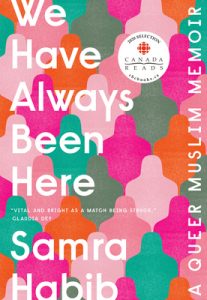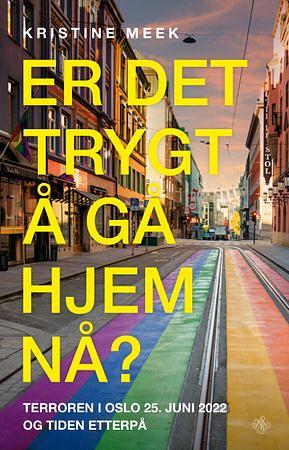 Der jeg av og til har følt at jeg approprierer noen andres terror når jeg føler at 22. juli berørte meg personlig, har jeg ingen «imposter syndrome» tendenser hva gjelder angrepet mot Per på hjørnet og London 25. juni 2023. Jeg var riktignok ikke i Rosekrantz’ gate den fredagskvelden, jeg var ikke engang i Oslo siden det nærmeste ledige hotellet når vi kom så langt som til å booke var i Asker, men vi var «i Oslo» for å feire Pride, for første gang til og med, og jeg har venner og bekjente som befant seg i nærheten og mange som like gjerne kunne vært midt i skuddlinjen dersom tilfeldighetene hadde villet det. Selv om de som ble drept, skadd eller skutt mot selvsagt har større eierskap til historien om angrepet enn meg, ødela Zaniar Matapour det som skulle vært en dag fylt av kjærlighet, lykke, stolthet og også trass og kamp for meg og min familie og for mange hundre tusen av mine skeive medmennesker og deres allierte.
Der jeg av og til har følt at jeg approprierer noen andres terror når jeg føler at 22. juli berørte meg personlig, har jeg ingen «imposter syndrome» tendenser hva gjelder angrepet mot Per på hjørnet og London 25. juni 2023. Jeg var riktignok ikke i Rosekrantz’ gate den fredagskvelden, jeg var ikke engang i Oslo siden det nærmeste ledige hotellet når vi kom så langt som til å booke var i Asker, men vi var «i Oslo» for å feire Pride, for første gang til og med, og jeg har venner og bekjente som befant seg i nærheten og mange som like gjerne kunne vært midt i skuddlinjen dersom tilfeldighetene hadde villet det. Selv om de som ble drept, skadd eller skutt mot selvsagt har større eierskap til historien om angrepet enn meg, ødela Zaniar Matapour det som skulle vært en dag fylt av kjærlighet, lykke, stolthet og også trass og kamp for meg og min familie og for mange hundre tusen av mine skeive medmennesker og deres allierte.
Så når Kristine Meeks bok om terrorangrepet kom ut i år var jeg tidlig nok ute til å måtte foreslå den som innkjøp til biblioteket, jeg kunne ikke bare sette meg på venteliste. Til gjengjeld fikk jeg jo boka kjapt, da, siden jeg vel havnet omtrent først i køen (dette er et tips, altså: Hvis du foreslår innkjøp kan du be om reservering i samme slengen).
I Er det trygt å gå hjem nå? vever Meek sammen historiene til mange av de som var på London eller Per på hjørnet denne kvelden med det vi vet om Matapours handlinger i ukene og dagene før, hva som skjedde selve kvelden 25. juni og hvordan livene til de berørte gikk videre (eller ikke) etterpå. Det er effektiv historiefortelling og Meek klarer å få fram mangfoldet i forhistorier og i reaksjoner på en måte som levendegjør hendelsene.
Da politiet forsøkte å avhøre henne, ville Kjersti først ikke si hva hun het. Camilla kjeftet på henne og sa at hun måtte oppgi navnet sitt, men Kjersti hadde låst seg. Hun ville ikke være der, være en del av dette, av denne hendelsen. De varme, gode følelsene de to hadde delt i kjelleren bare minutter tidligere, var som knust i tusen biter. De stod rett overfor hverandre og raknet på hvert sitt vis. Frykten og smerten kom ut av Camilla i form av tårer og gråt, og den rastløse kroppen stod ikke stille. Kjersti mistet stemmen og forsvant dypt inn i seg selv. Hun låste seg i møte med de andre på hotellet, politiet og kriseteamet. Hun ville ikke si et ord, bare synke ned i jorda og bli usynlig, mens Camilla ropte og gråt. Etter en stund gikk de utenfor for å trekke litt luft, for å se om det var lettere å snakke eller bare puste i friluft. Men det ble bare verre. Der, kun ti meter unna, lå det to døde under hvert sitt hvite laken. Kjersti så føttene til den ene av dem stikke ut fra det ene lakenet. For henne var det dråpen. Hun måtte bort. (Side 142)
Noe av det mest frustrerende er å lese om hvordan flere av de berørte strevde med å få hjelp etter hendelsen. Man kunne jo håpet at vi hadde lært etter 22. juli, men det er fortsatt langt å gå, tydeligvis. Noe av problemet var selvsagt at de som ble innblandet var fra mange forskjellige steder i landet, og at de som flyktet fra stedet og aldri ble registrert noe sted ikke fikk oppfølging er forståelig, men at ikke «noen» fikk i oppgave å følge opp de som ble registrert, avhørt og fikk medisinsk behandling er rett og slett skammelig (ikke at det er noe nytt at det psykiske helsevesenet vårt er mangelfult, for så vidt).
En annen ting som blir klart gjennom historien er at når man sier at «representasjon betyr noe» gjelder det ikke bare at det er viktig for alle med rollemodeller, men at mangfold rent praktisk er viktig. Det er jo helt utrolig at ikke PST eller E-tjenesten klarte å koble Bhattis brennende Prideflagg med at Oslo Pride foregikk akkurat da og kunne være et sannsynlig terrormål. Også i statsapparatet vises det at mangfold er nødvendig for bevisstgjøring:
I samtalene som fulgte, var de som jobbet med hva ministeren skulle gjøre og si den neste dagen, ikke i tvil om at dette var et angrep på skeive. Dessverre var de heller ikke overrasket. Mange fra departementet som jobbet tett med Trettebergstuen, hadde blitt rystet da de fikk se meldingene som tikket inn til ministeren etter offentlige opptredener som dreide seg om skeive eller om Pride. Trettebergstuen hadde på sin side blitt overrasket over at de ble overrasket. Visste de ikke hvor hatefulle enkelte var når det gjaldt skeiv tematikk? Trusler og sjikane var hun vant til, og hun hadde lenge fryktet at noen ville gjøre alvor av truslene. Nå fryktet hun hva dette angrepet ville lede til. (Side 157)
Dette er en bok jeg kommer til å ha lyst til å lese igjen, så egentlig kunne jeg like gjerne ha kjøpt den. Ja, ja, det er jo ikke for sent å gjøre det.
Boka har jeg lånt på Trondheim folkebibliotek.
 Ok, dette blir egentlig ingen omtale av boka, men mer en liten refleksjon og/eller et hjertesukk. Jeg begynte på Felix Ever After av Kacen Callender i mai i fjor og leste litt over en tredjedel før jeg bare ikke plukket den opp igjen. Det var overhodet ikke et bevisst valg, den lå i «disse bøkene holder jeg på med»-bunken, lett tilgjengelig ved siden av godstolen.
Ok, dette blir egentlig ingen omtale av boka, men mer en liten refleksjon og/eller et hjertesukk. Jeg begynte på Felix Ever After av Kacen Callender i mai i fjor og leste litt over en tredjedel før jeg bare ikke plukket den opp igjen. Det var overhodet ikke et bevisst valg, den lå i «disse bøkene holder jeg på med»-bunken, lett tilgjengelig ved siden av godstolen.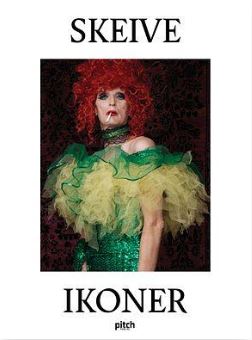 Som nevnt i
Som nevnt i 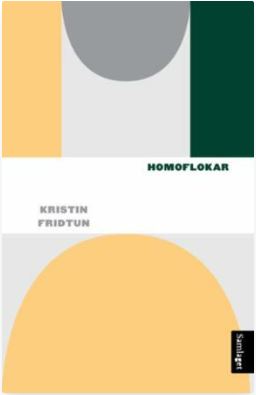
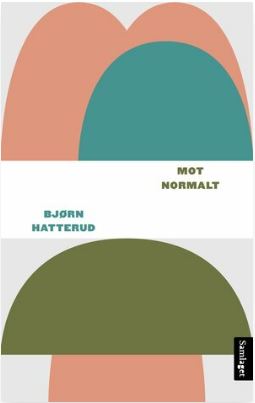 Jeg kom på at jeg hadde tenkt å lese mer om krigsseilerne, og da kom jeg også på at jeg hadde tenkt å lese de bøkene av Bjørn Hatterud som jeg ikke har lest ennå (fordi Blokka på Bjerke (som jeg leste tidligere i år) blant annet handler om en av naboene som var krigsseiler). En tur på biblioteket senere, og jeg hadde en bunke bøker som bestod av ikke bare to bøker om krigsseilerne, Bjørn Hatteruds Mot normalt og Skeive ikoner (medforfatter Caroline Ugelstad Elnæs), men også Kristin Fridtuns Homoflokar som sto på samme hylle. Dette var i begynnelsen av august, og jeg var egentlig klar for å kaste meg over bunken umiddelbart, men så dukket
Jeg kom på at jeg hadde tenkt å lese mer om krigsseilerne, og da kom jeg også på at jeg hadde tenkt å lese de bøkene av Bjørn Hatterud som jeg ikke har lest ennå (fordi Blokka på Bjerke (som jeg leste tidligere i år) blant annet handler om en av naboene som var krigsseiler). En tur på biblioteket senere, og jeg hadde en bunke bøker som bestod av ikke bare to bøker om krigsseilerne, Bjørn Hatteruds Mot normalt og Skeive ikoner (medforfatter Caroline Ugelstad Elnæs), men også Kristin Fridtuns Homoflokar som sto på samme hylle. Dette var i begynnelsen av august, og jeg var egentlig klar for å kaste meg over bunken umiddelbart, men så dukket  For deg som trenger tips til #sakprosaseptember, eller som bare trenger tips til sakprosa, har jeg en klar anbefaling: Les Født i rett kropp av Luca Dalen Espseth.
For deg som trenger tips til #sakprosaseptember, eller som bare trenger tips til sakprosa, har jeg en klar anbefaling: Les Født i rett kropp av Luca Dalen Espseth.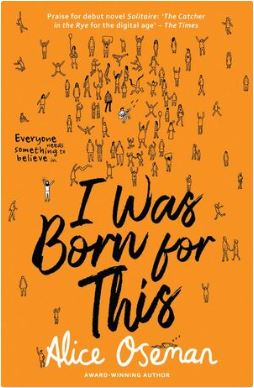 Det er mulig det blir en trend at jeg starter å høre på lydbøker og så går over til å lese ferdig i fysisk bok, jeg har i alle fall gjort det igjen, denne gangen med den siste Alice Oseman-romanen jeg hadde på TBR, I Was Born for This.
Det er mulig det blir en trend at jeg starter å høre på lydbøker og så går over til å lese ferdig i fysisk bok, jeg har i alle fall gjort det igjen, denne gangen med den siste Alice Oseman-romanen jeg hadde på TBR, I Was Born for This.
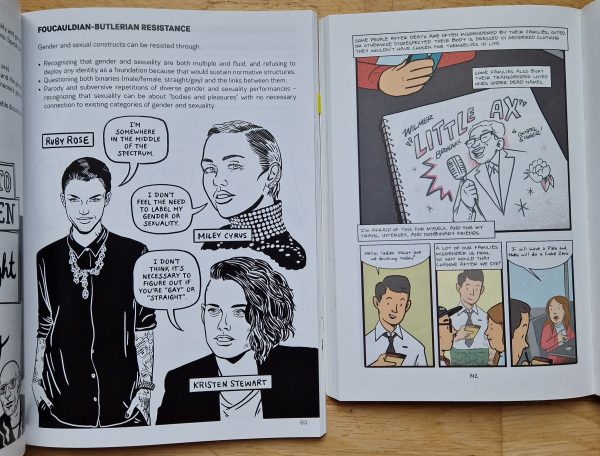
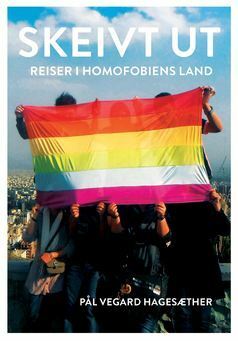 Skeivt ut kom ut i 2017, og jeg husker ikke hvor jeg hørte om boka, men den dukket nylig opp i «to-read pile»-visningen i Storygraph (en av de tingene jeg virkelig liker med Storygraph er at de viser fem tilfeldige titler fra de bøkene du har markert som «to read» på forsiden, der Goodreads bare viser de tre du sist la til), og jeg fikk det for meg å sjekke om biblioteket hadde den, og det hadde de.
Skeivt ut kom ut i 2017, og jeg husker ikke hvor jeg hørte om boka, men den dukket nylig opp i «to-read pile»-visningen i Storygraph (en av de tingene jeg virkelig liker med Storygraph er at de viser fem tilfeldige titler fra de bøkene du har markert som «to read» på forsiden, der Goodreads bare viser de tre du sist la til), og jeg fikk det for meg å sjekke om biblioteket hadde den, og det hadde de.